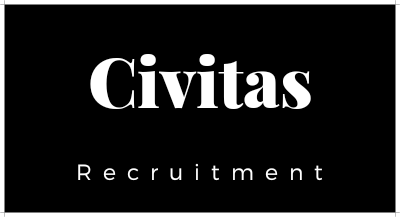In today’s digital age, AI has become an indispensable tool for job seekers. From crafting CV’s to researching companies, it offers a faster and more streamlined approach to navigating the job search. But when it comes to writing cover letters or answering screening questions, there’s a significant risk in over-relying on AI. Although these tools can help with structure, grammar, and even content generation, they can’t replace the personal touch that makes your application stand out. Hiring managers have noted that candidates are using AI to help answer screening questions and these are not the applicants’ own answers. Charities are using tools and measures themselves to identify AI generated answers and they are often easy to detect. AI generated answers will definitely work against you in this situation as it is not authentic.
Here’s why you should be cautious about letting AI do the heavy lifting in your job applications on top of the fact that hiring managers do not like this practice:
Authenticity: What AI Can’t Replicate
In the competitive job market, authenticity is everything. Employers want to hear from real people, not from templated responses or overly polished text that lacks a genuine voice. AI-generated cover letters and answers to screening questions often come off as sterile and lack the unique tone that hiring managers are looking for.
AI Can’t Understand the Nuances of a Job or Industry
One of the key limitations of AI is its inability to fully grasp context. AI can read job descriptions and suggest responses based on patterns it has learned, but it lacks the deeper understanding of the company’s culture, the specific nuances of the role, or the expectations of the hiring manager. When it comes to job applications, these subtleties matter.
For instance, when a hiring manager asks how you handle pressure, they’re not just looking for a cookie-cutter response. They want to hear about specific situations where you managed stress effectively, demonstrating how your skills align with the demands of the role. AI cannot replicate the richness of these personal experiences, which is why it’s critical to craft your own answers with specificity and insight.
The Risk of Blending In
While AI can certainly produce a grammatically perfect response, the risk of blending in is real. The more you rely on AI-generated content, the more your application starts to look like everyone else’s. Hiring managers, who sift through hundreds of applications, will quickly notice generic responses, and that’s the last thing you want.
Building Confidence and Clarity in Your Own Abilities
AI tools are fantastic for improving structure, grammar, and style, but they don’t help you develop the key skill of articulating your experiences clearly and confidently. By writing your own responses, you’re forced to reflect on your strengths, achievements, and how they align with the job. This process not only helps you craft a stronger application but also boosts your confidence in your qualifications.
Conclusion: Use AI as a Tool, not a Crutch
While AI can be a great resource for refining your writing, ensuring grammatical accuracy, or even brainstorming ideas, it should never replace your own voice. Job applications are an opportunity to connect with employers on a human level, showcasing your individuality, experiences, and aspirations. By relying too much on AI, you risk losing the personal touch that makes your application unique.
Instead of allowing AI to write for you, use it to enhance your ideas, improve structure, or check for errors. But always make sure the content reflects who you are, your passion for the role, and your suitability for the position. After all, it’s not just your qualifications that matter—it’s the authenticity, enthusiasm, and individuality that will make you stand out and win the job.
Our consultants at Civitas Charity Recruitment have over a decade of recruiting for the charity sector and can help you navigate the job application process including writing cover letters and guide on screening questions where required. Please do feel free to contact us if you have a hiring need or are keen to progress your charity experience.
Related posts
Internal Mobility: Why the Best Talent Strategy is Looking Right at You – April 2025
Let’s stop pretending the war for talent is just outside our walls. It’s not. It’s also right inside—among the people who already know our systems, our culture, and our customers. In 2025, the smartest hiring strategy isn’t external recruitment. It’s internal mobility. The talent you’re chasing? You may already employ them. You just haven’t asked…
Why You Should Avoid Over-Relying on AI for Writing Cover Letters and Screening – April 2025
In today’s digital age, AI has become an indispensable tool for job seekers. From crafting CV’s to researching companies, it offers a faster and more streamlined approach to navigating the job search. But when it comes to writing cover letters or answering screening questions, there’s a significant risk in over-relying on AI. Although these tools…
Skills Based Hiring – May 2024
Adapting to Skill-Based Hiring in the Charity Sector The job market is evolving, and so are hiring practices. More and more organisations, including those in the charity sector, are shifting their focus from traditional qualifications to a skill-based approach when recruiting new talent. This means, hiring managers care less about degrees and more about what…
How to draft an authentic and appealing job description – September 2023
The perfect Job Description doesn’t exist…or does it? The first step of successfully filling a role is to write a Job Description, or JD – this will be posted on the charity’s website, featured in job adverts, or possibly sent to you by your recruiter. The aim of the JD is to sell the role…
Five practical tips to help you prepare for your next interview – July 2023
Five practical tips to help you prepare for your next interview Whether you love them or hate them, interviews are a necessary step in advancing your career. And, regardless of which side of the fence you sit on, or how much interview experience you have, there are some easy wins that can take you from…
The Law of Attraction: How to recruit and retain high-calibre talent – July 2023
It’s no surprise that, in recent years, UK businesses are experiencing difficulty recruiting employees with relevant skills. With a growing number of vacancies and, simultaneously, a shortage of suitable candidates to fill them, we understand the anxiety that many small firms are facing in the current job market. We have seen this first-hand in the…





